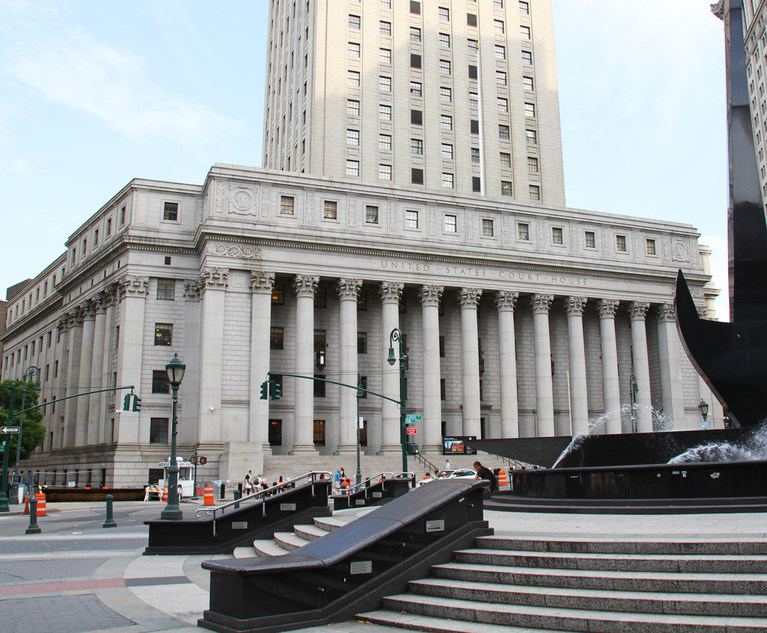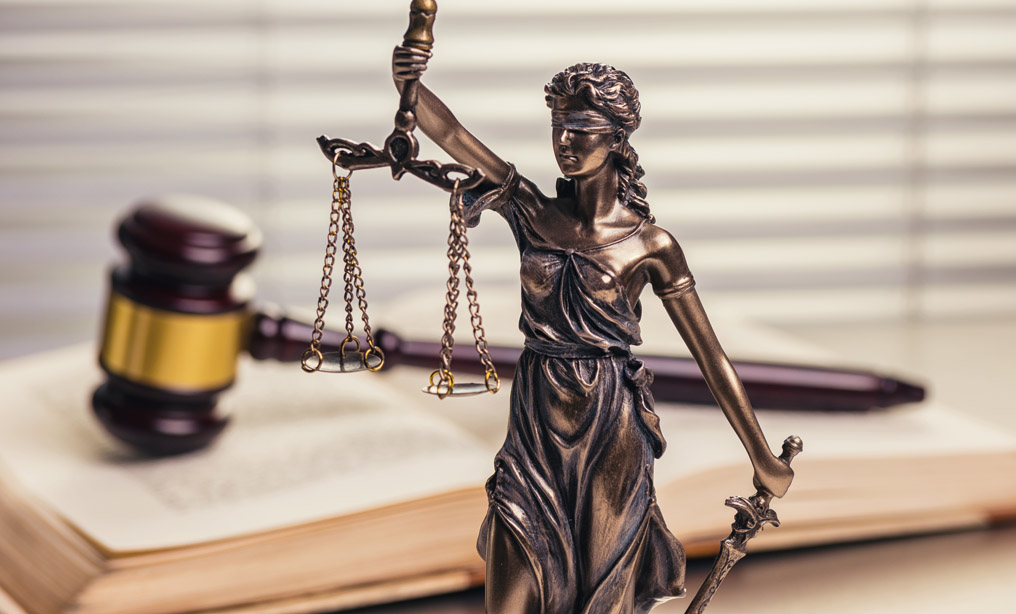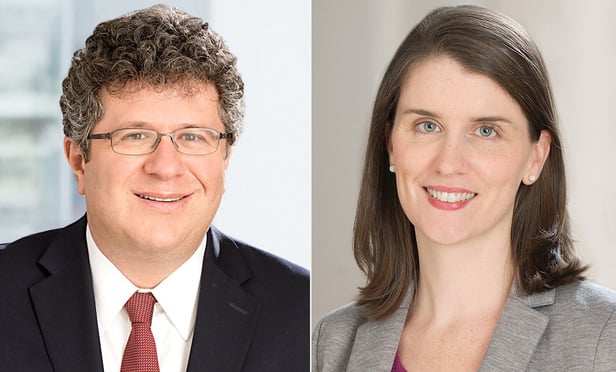Harry Sandick

May 13, 2024 | Law.com
U.S. Regulators Emphasize Pursuit of Enforcement Actions Against Non-U.S. Persons and EntitiesThe guidance mirrors the recent, broader impulse among U.S. prosecutors and regulatory agencies to extend application of U.S. law to foreign persons and entities, even when those persons and entities have only threadbare connections to the U.S.
By Harry Sandick and Sarah Hardtke
11 minute read

November 27, 2023 | Law.com
Enhanced Oversight of Search Warrants and Title III WiretapsSearch warrants and wiretaps were once used primarily to investigate organized crime, drug dealing and terrorism. In recent years, however, prosecutors have employed these tools increasingly in the context of white-collar crime to the point where it is now commonplace.
By Harry Sandick, Bonnie Robinson and Thomas Kicak
17 minute read

May 30, 2023 | Law.com
Acquitted-Conduct Sentencing: A Quagmire Neither the Supreme Court Nor the U.S. Sentencing Commission Can Continue to AvoidIt has been common knowledge to criminal practitioners for years that a criminal defendant's sentence for a crime of which they have been convicted can be increased based on consideration of conduct that the jury acquitted. This outcome can make a partial acquittal in federal court into a pyrrhic victory.
By Harry Sandick and Nicole Scully
13 minute read

February 15, 2023 | Law.com
Second Circuit Narrows Reach of Wire Fraud and Insider Trading ProhibitionsThe Second Circuit's long-anticipated decision in United States v. Blaszczak limits the government's ability to bring fraud or insider trading prosecutions where the information used to achieve an advantage is regulatory information held by the government. It also brings the Second Circuit in greater alignment with the Supreme Court's wire fraud jurisprudence.
By Harry Sandick, Anna Blum and Abigail Marion
12 minute read

December 07, 2020 | New York Law Journal
Circuit Calls for Reintroduction of Parole for Federal DefendantsWith its opinion in 'Portillo', the Second Circuit points out a real problem in sentencings of young people for serious crimes.
By Harry Sandick and Emma Ellman-Golan
8 minute read

December 04, 2020 | New York Law Journal
DOJ's Arguments in Trump Litigation Should Benefit Other DefendantsEqual justice under law is the highest value of our legal system, and no one should receive preferential treatment because they are friends with the president.
By Harry Sandick and Jacob Tuttle Newman
9 minute read

December 06, 2019 | New York Law Journal
Prosecutions Under the Foreign Agents Registration Act: The Past, Present and FutureIn light of these recent developments, it is important for defense attorneys, in-house counsel, and compliance counsel whose clients are engaged in international business activities to be familiar with FARA.
By Harry Sandick and Clint Morrison
10 minute read

December 07, 2018 | New York Law Journal
The Global Reach of U.S. Law EnforcementAs DOJ persists in its international focus in prosecuting white-collar crime and the courts restrict the global reach of various statutes while expanding the scope of constitutional protections for defendants, DOJ and the courts do appear to be on a collision course.
By Harry Sandick and Jeff Kinkle
9 minute read

July 07, 2017 | New York Law Journal
SCOTUS to Decide if Cell Site Location Is Protected by Fourth AmendmentHarry Sandick and George LoBiondo write that in June, the Supreme Court granted certiorari in a case that will test whether the justices are again willing to break new ground in the cell phone privacy context. The court will decide whether the government needs a search warrant to obtain historical records of a suspect's cell phone location, or whether it may do so under the Stored Communication Act, which requires the government to show only that there are reasonable grounds to believe that the records are "relevant and material to an ongoing criminal investigation."
By Harry Sandick and George LoBiondo
9 minute read

November 29, 2016 | New York Law Journal
Second Circuit Clarifies Scope of Proffer Agreement WaiversHarry Sandick and Helen P. O'Reilly of Patterson Belknap Webb & Tyler examine the decision in 'U.S. v. Rosemond', in which the Second Circuit clarified how and when certain defense tactics at trial can open the door to the introduction of protected proffer statements. Although securing a cooperation agreement after proffering to the government can lead to enormous benefits for those who successfully navigate the process, the negative consequences of a failed proffer are profound. The agreements typically involve a partial waiver of the protections that evidence of any "statement made during the course of plea discussions with an attorney for the prosecuting authority" is inadmissible against the defendant.
By Harry Sandick and Helen P. O'Reilly
20 minute read
Trending Stories
- 1Gibson Dunn Sued By Crypto Client After Lateral Hire Causes Conflict of Interest
- 2Trump's Solicitor General Expected to 'Flip' Prelogar's Positions at Supreme Court
- 3Pharmacy Lawyers See Promise in NY Regulator's Curbs on PBM Industry
- 4Outgoing USPTO Director Kathi Vidal: ‘We All Want the Country to Be in a Better Place’
- 5Supreme Court Will Review Constitutionality Of FCC's Universal Service Fund
More from ALM
- Legal Speak at General Counsel Conference East 2024: Match Group's Katie Dugan & Herrick's Carol Goodman 1 minute read
- Legal Speak at General Counsel Conference East 2024: Eric Wall, Executive VP, Syllo 1 minute read
- Legal Speak at General Counsel Conference East 2024: Virginia Griffith, Director of Business Development at OutsideGC 1 minute read



